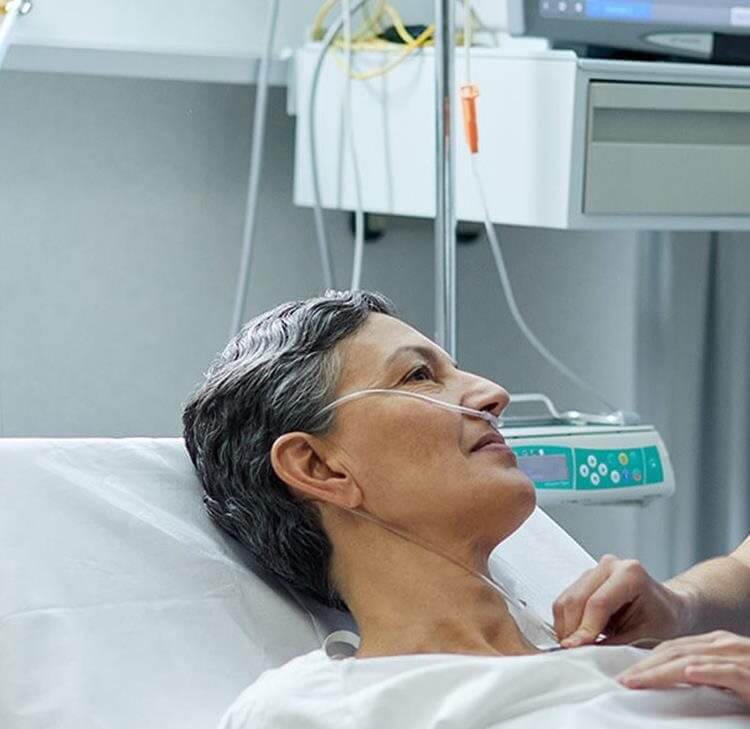Shared Insights: Claims update and look ahead to the issues that will shape the approach to claims in the NHS in 2021
12 January 2021
These insights were shared at our fortnightly online forum for NHS professionals on 12 January 2021. To find out more please visit our Shared Insights hub.
Damian Whitlam, Partner at Browne Jacobson, advises NHS Trusts and NHS Resolution in resolving patient disputes efficiently and fairly, on indemnity issues with potential third parties and helps NHS organisations learn from claims to drive improvements in patient care.
The Shared Insights were:
Procedure
- The COVID-19 Clinical Negligence Protocol agreed by NHS Resolution, is still in force. This does not require individual claimants to sign up to the protocol, but it does provide a framework for how cases should progress throughout the COVID-19 pandemic, and includes provisions with regard to limitation, and remote consultations etc.
- It is important that parties continue to embrace remote working, in particular with regards to remote mediation and remote settlement meetings. These have proved to be successful and have been embraced by both defendants and claimants across the board and our view is that during 2021 they will continue and may well continue beyond the end of the pandemic given the success.
- In addition to this, remote meetings in relation to expert consultations, conferences with counsel and witness/ clinicians’ meetings have again been useful in allowing matters to progress.
- Practice Direction 51 Z A expired on 3 October 2020. This was brought in by the Coronavirus Act 2020 and allowed an extension of time to be agreed between the parties up to 56 days. However, this is no longer in force so parties must now rely on CPR 3.8 (4) which only allows the parties to be able agree an extension of time up to 28 days.
- Interestingly, the Civil Procedure Rules Committee met on 6 November 2020 and determined that, when the Designated Civil Judges had discussed the matter, there was no appetite to extend the Practice Direction beyond the end of October 2020.
- However, they did discuss making a provision coming into force in April 2021 for changes in the rules to be allowed to be made by the Civil Procedure Rules Committee in a national emergency.
- Details are awaited and we will see how this is going to work in practice.
Witness statements
- The case of Ceviz v Frawley & Anor [2021] EWHC 8 (Ch) (08 January 2021) gives further weight to the argument that witness statements are there to give evidence, not to argue a case. In this case, the statement provided was 22 pages long and 111 paragraphs. The statement itself, and the legal representatives who prepared it, were criticised. This case took place in the Business and Property Court which is going to require lawyers to confirm that statements comply with the relevant rules. However, it is an important reminder that witness statements are there to give factual evidence, not to argue a case.
Withdrawing admissions
- The case of Advinia Care Homes Ltd v (1) BUPA Care Homes Investments (Holdings) Ltd & Ors [2020] EWHC 1563 (Ch) (19 June 2020) was decided in late 2020 and concerns the attempted withdrawal of an admission of liability. That admission had been made two years previously in the Defence and the important message to take away from this case is that the Judge stated clearly that withdrawal of admission was very serious in particular where the claimant had placed reliance upon it. Again, it is recent case law that supports the argument that attempting to withdraw an admission is a high bar, and highlights the importance of thinking very carefully about both withdrawing admissions and making admissions in the first place.
Taking screenshots and photos in a remote hearing
- The case SLF Associates Inc v (1) HSBC (UK) Bank Plc & Ors [2021] EWHC 5 (Ch) concerned the unlawful act of taking photographs and screenshots at a remote trial. It involved a witness who had taken a screenshot of the remote hearing and circulated it. The judge found that such action was unlawful. The important message here is that individual witnesses need to be aware that when they attend a remote trial it is still a formal court process and they should act as if it is such, in all respects, including how they conduct themselves in the remote court.
Speakers

Damian Whitlam
Partner
Shared Insights
Our monthly forum connecting health and care leaders and professionals to discuss challenges and share solutions.
Contact

Damian Whitlam
Partner
damian.whitlam@brownejacobson.com
+44 (0)330 045 2332
Contact Damian

Nicola Evans
Partner
Nicola.Evans@brownejacobson.com
+44 (0)330 045 2962
Contact Nicola







![Contractual liability for all inclusive treatment: Bartolomucci v Circle Health Group Limited [2025]](/getattachment/95f9533b-f99c-4fcc-b8d5-3f93904b8242/shutterstock_1265400856.jpg?variant=HeroImageTabletVariantDefinition)
































